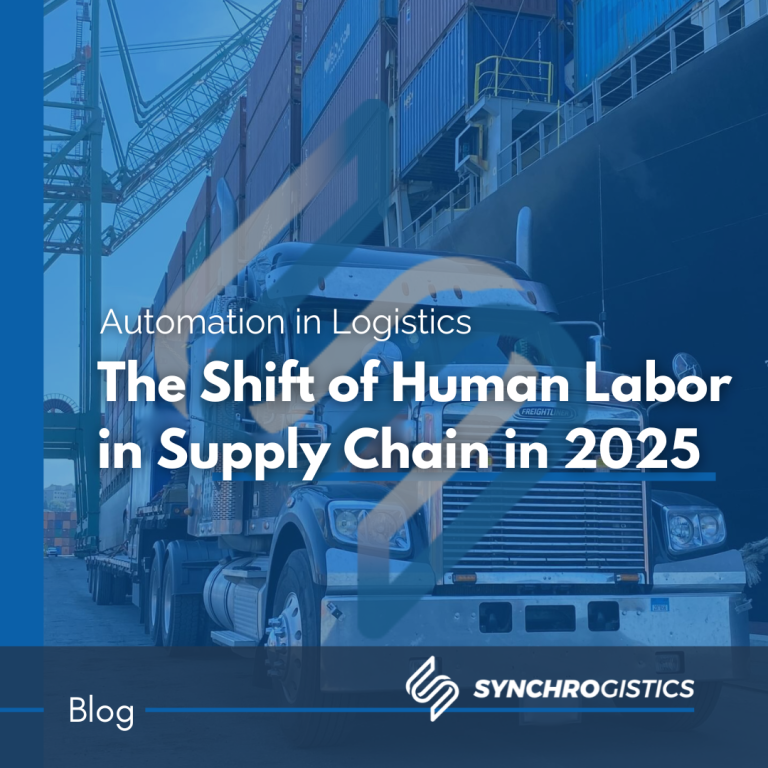
Automation in Logistics : The Shift of Human Labor in Supply Chain in 2025
Logistics and supply chain have been at a crossroads this year, and 2025 could become a turning point for human labor in the supply chain. As we’ve seen, high-profile disruptions, such as port strikes, and union standoffs have shown vulnerabilities in traditional labor-dependent supply chains. As companies seek to mitigate these risks, automation and AI are emerging as the new solutions for ensuring stability and efficiency.
Union Strikes Highlight the Need for Change
Recent labor disputes, particularly in ports and freight hubs, have shown just how fragile human-reliant supply chains can be. Strikes, wage disputes, and staffing shortages have disrupted global trade, delayed shipments, and increased costs.
Fully automated port operations are already underway in regions like Asia and parts of Europe. While automation won’t eliminate human jobs entirely, it’s becoming clear that the industry’s reliance on physical labor for repetitive tasks is diminishing.
Efficiency vs. Job Security
The push for automation isn’t without controversy. Labor unions have expressed concern about the potential for widespread job losses. However, many industry leaders argue that automation is a necessity, not a choice, given the rising demand for efficiency and the challenges posed by global disruptions.
This does not mean human workers are being sidelined altogether. The focus is shifting from manual tasks to roles requiring strategic thinking, problem-solving, and managing advanced systems.
The Rise of Autonomous Technologies
Self-driving trucks and drone deliveries are no longer science fiction. Companies have been investing heavily in these technologies to bypass potential back-ups caused by labor disputes or worker shortages.
-
- Autonomous Vehicles: Trials of driverless trucks in the U.S. and Europe have been promising, offering solutions to ongoing driver shortages and reducing the risk of disruptions from human factors like illness or strikes.
-
- Warehouse Automation: Robots powered by AI are transforming warehousing. They can pick, pack, and sort items faster and more accurately than human workers, enabling companies to fulfill orders even during labor slowdowns.
-
- Drones: Last-mile delivery by drones is gaining traction, with companies like Amazon and UPS piloting programs that could soon become widespread.
- AI Freight Brokers: Companies such as Freight Caviar are introducing new AI-powered brokers that automate carrier calls, negotiate rates, and more.
Synchrogistics | Logistics in Raleigh
At Synchrogistics, a leading 3PL logistics provider in Raleigh, we are committed to continuously advancing our technology to offer innovative solutions that keep our clients ahead of the curve. As we look forward to the new year, we’re excited to embrace the opportunities for the logistics industry.
